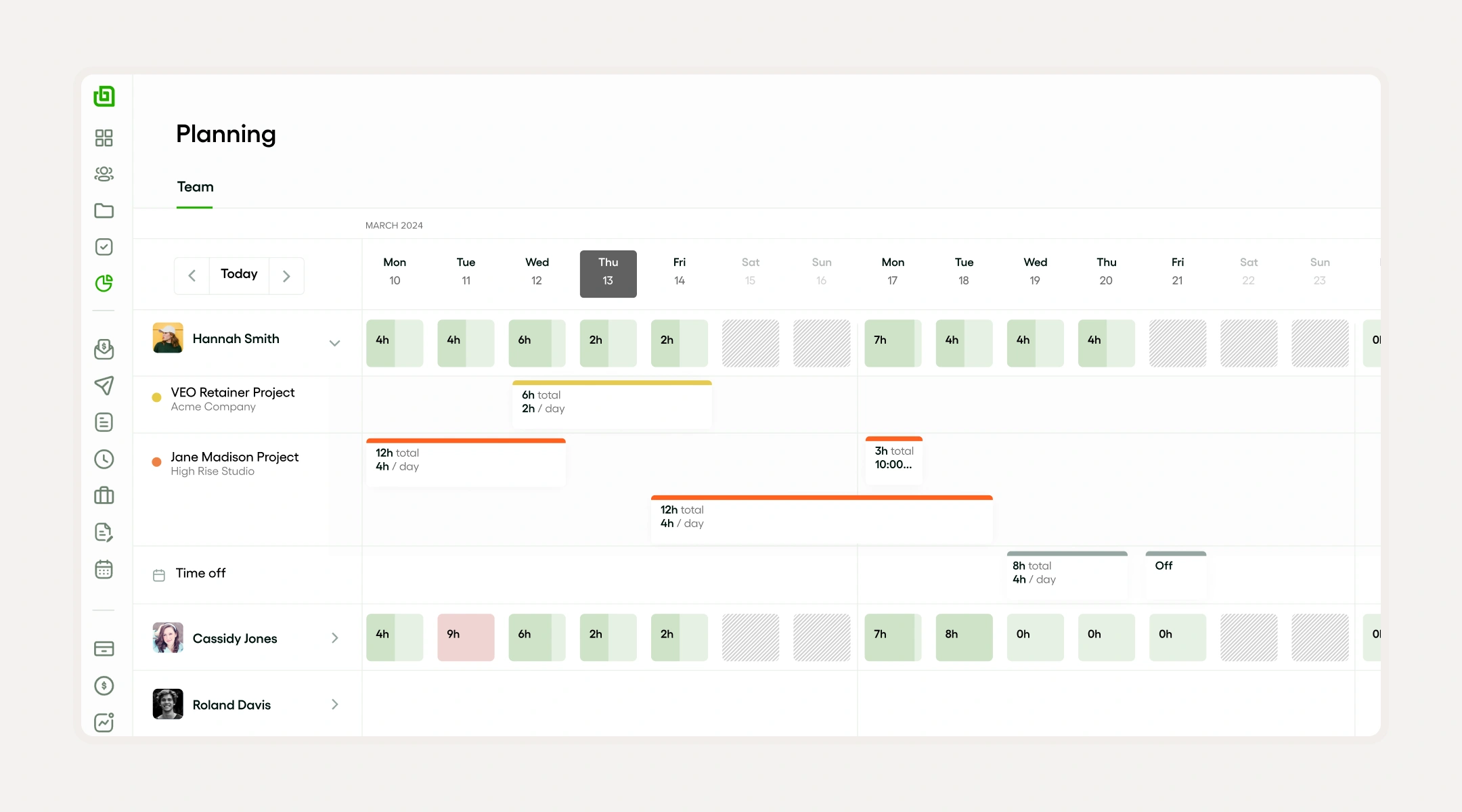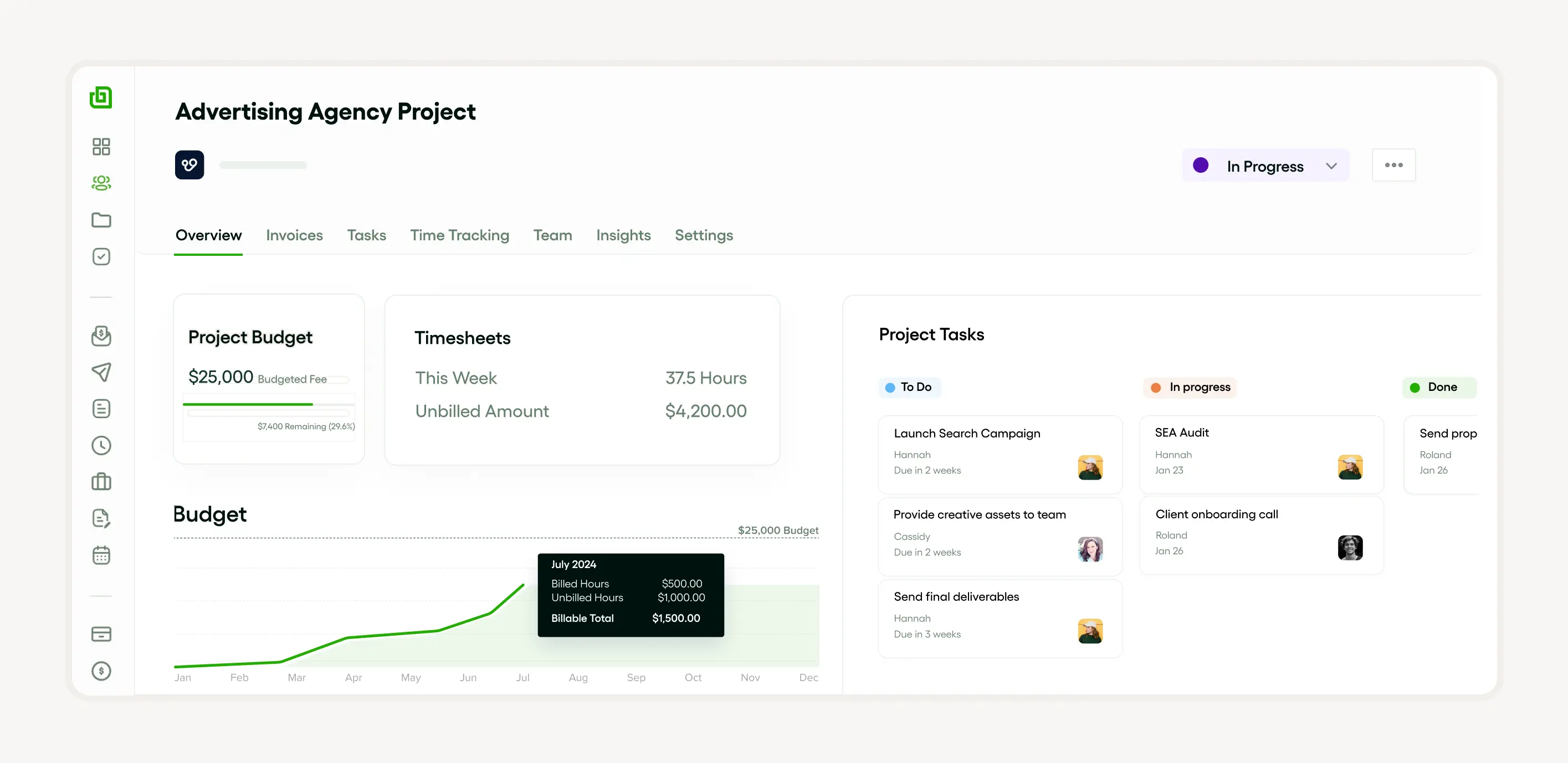Essential KPIs for professional services cover financial performance, operational efficiency, and business performance. These key areas provide crucial insights into services revenue, project performance, and billable utilization. Specifically:
- Financial performance indicators gauge revenue growth and profit margins.
- Operational efficiency KPIs evaluate resource utilization and productivity.
- Business performance involves assessing customer satisfaction and sales outcomes.
Tracking these metrics is vital for performance management, ensuring ongoing improvement and success in a professional services firm.
Understanding the importance of KPIs in professional services
In order to successfully achieve strategic objectives and monitor your organization's progress, it's integral to identify and analyze key performance indicators for your professional services. This process can be greatly enhanced by having an efficient project management system in place. With the correct approach to project management, your business can not only meet KPIs effectively but exceed them, paving the way for growth and success.

In professional services, Key Performance Indicators (KPIs) are pivotal for monitoring financial health, operational efficiency, and overall business performance. These metrics range from project performance and resource utilization to sales outcomes and customer satisfaction.
Professional services KPIs track revenue growth and billable utilization, aiding in performance management, optimizing revenue, and improving services revenue. Implementing and monitoring KPIs enables organizations to boost utilization and realization rates, enhancing business operations and success.
Defining key performance indicators (KPIs)
KPIs serve as essential metrics for evaluating business performance. They provide a snapshot of financial health through metrics like revenue growth and utilization rates. Tracking these metrics allows companies to oversee sales outcomes, improve customer satisfaction, and drive positive results in professional services KPIs.
For those in the professional services sector, project performance, operational efficiency, and resource utilization are key KPIs. These indicators monitor the effectiveness of specific projects and resource use, playing a crucial role in performance management. By managing these KPIs effectively, firms can enhance services revenue and billable utilization, ultimately driving success.
The role of KPIs in business strategy
KPIs are vital in shaping business strategy by offering insights into performance, efficiency, and financial health. Professional services KPIs help evaluate various aspects, including project performance, resource utilization, sales outcomes, and customer satisfaction. These insights identify improvement areas and inform strategic decisions to enhance overall performance management.
For professional service organizations, KPIs like billable utilization, revenue margins, and services revenue are crucial for tracking growth and ensuring profitability. Focusing consistently on these KPIs improves operational efficiency and provides a competitive edge.
The Benefits of using Bonsai for streamlining operations
Simplify your business operations with Bonsai, offering all the tools operations teams require to streamline processes, effectively manage projects, and keep the business on the right path. Bonsai's wide range of tools boost productivity, optimize resource distribution, and promote smooth collaboration, making it a crucial solution for contemporary businesses. Bonsai is a powerful tool designed to help businesses maximize their revenue growth through efficient project and client management.
Manage, plan and optimize resources
Bonsai is a valuable tool for businesses to efficiently manage, plan, and optimize resources. It enables users to set team member capacity, allocate resources, and track utilization. With its budgeting, finance tracking, and profitability reports features, Bonsai ensures that projects remain on track and within budget, making resource management seamless and effective.
- Set team member capacity
- Set billable and cost rates
- Allocate resources

Monitor project profitability
Bonsai enables businesses to monitor project profitability with ease. It offers real-time tracking of budgets, expenses, and billable hours. With detailed profitability reports and budget overspend warnings, Bonsai ensures you stay on top of your financial goals, making project management more efficient and profitable.
- Track project budgets and costs
- Track team utilization
- Track invoice payments

Dive into key business KPIs
Bonsai provides valuable insights into key business KPIs such as operational efficiency, resource utilization, and revenue growth. By keeping track of these metrics, organizations can optimize their operations, enhance efficiency, and drive revenue growth. With Bonsai's comprehensive KPI dashboard, you can better align with your strategic goals and make data-driven decisions.
- Plan ahead with forecasting
- Keep stakeholders up to date

Top KPIs for professional services
In our pursuit of measuring performance in the professional services industry, we also delve into key areas such as paid search. One essential aspect to consider is monitoring certain Paid Search KPIs which provides valuable insights into your campaign's effectiveness. These metrics can be vital in making strategic adjustments to maximize your return on investment.

KPIs for professional services zero in on financial performance, operational efficiency, and overall business health. These metrics are crucial for measuring success and service quality.
Top KPIs include revenue growth, tracking income increases, and resource utilization, monitoring how well resources are used. Sales performance is key, assessing how effectively the sales team meets goals. Other vital metrics are customer satisfaction, project performance, and billable utilization.
Utilization and realization measure the time employees spend generating revenue. Embracing these KPIs drives growth and profitability.
Billable utilization rate
Billable utilization rate is a key metric for financial performance and efficiency. It measures the time spent on billable work versus total working time, reflecting business performance and revenue.
Factors influencing this rate include:
- Project performance: Poor management or unrealistic timelines can hurt the rate.
- Resource utilization: Higher utilization boosts the rate.
- Revenue and margin: Directly impacts growth and profit, highlighting performance management.
Monitoring this rate helps improve sales performance, customer satisfaction, and revenue growth.
Project margin
Project margin gauges a project’s financial health. Key KPIs like revenue growth and operational efficiency impact project performance. Improving resource utilization enhances revenue and margins.
Performance management boosts business health. Strategies focusing on billable utilization and customer satisfaction improve services revenue. Consistent sales performance monitoring is crucial for overall growth.
Client satisfaction score
Client satisfaction is vital for evaluating KPIs, efficiency, and business health. Resource utilization, project performance, and professional services KPIs are key for high satisfaction rates.
Assess financial performance, including revenue, margin, and sales. Billable utilization is also crucial. Monitoring these factors supports steady revenue growth and a healthy performance system.
A high satisfaction score boosts reputation and market position.
Employee turnover rate
Employee turnover rate is a key KPI for operational efficiency and business health. High turnover signals internal issues affecting satisfaction, project performance, and resource utilization.
In professional services, turnover impacts billable utilization and revenue. Frequent personnel changes can disrupt performance management, affecting financial performance, growth, and satisfaction. Maintaining a healthy turnover rate is crucial for success.
Revenue per employee
Revenue per employee is a critical KPI for professional services. It measures financial performance and efficiency, indicating resource productivity. This metric is essential for evaluating business and project performance.
Key factors include:
- Revenue growth
- Customer satisfaction
- Sales performance
These factors also impact services revenue and billable utilization. Effective performance management enhances revenue per employee, leading to higher profit margins.
How to measure and track KPIs
Measuring and tracking KPIs requires understanding your business operations and objectives. This includes professional services KPIs, financial health, and operational efficiency. Regularly review progress and adjust metrics to reflect changes in business performance or resource utilization.
To track project or sales performance, consider using performance management software. These tools facilitate monitoring KPIs like revenue growth, customer satisfaction, and revenue margins. For service-oriented businesses, tracking services revenue and billable utilization is crucial.
Using business intelligence tools: Bonsai, Tableau, Power BI
Business intelligence tools like Bonsai, Tableau and Power BI enhance operational efficiency and business performance. These tools enable organizations to visualize and analyze KPIs, financial health, and resource utilization. They provide a comprehensive view of project performance, aiding decision-making and performance management.

Bonsai, Tableau, and Power BI offer insights into revenue growth, customer satisfaction, and sales performance. They deepen understanding of services revenue, revenue margins, and billable utilization, facilitating strategic decisions. These tools are key in tracking and improving professional services KPIs.
Implementing KPI dashboards
Implementing KPI dashboards offers insights into financial health, operational efficiency, and revenue growth. These dashboards measure metrics like professional services KPIs, sales performance, and customer satisfaction, helping assess business performance and inform decisions.
KPI dashboards also track project performance, resource utilization, and billable utilization. These indicators support effective performance management, optimize utilization and realization, and enhance services revenue. Implementing KPI dashboards is crucial for a successful business strategy.
Setting realistic and achievable KPI targets
Setting realistic KPI targets is vital for performance management. KPIs should accurately measure business performance, covering financial health, project performance, and operational efficiency. These targets clarify your organization’s objectives, focusing on areas like sales performance, customer satisfaction, and services revenue.
Performance targets should align with company goals, incentivizing improvements in billable utilization and revenue margins. This fosters enhanced utilization and realization, driving overall success.
Aligning KPIs with business goals
Professional services KPIs align with business goals, focusing on financial health and operational efficiency. They offer insights into resource utilization, revenue growth, and customer satisfaction. Adopting these KPIs helps organizations develop strategies to improve business performance.
KPIs on revenue margins and services revenue monitor sales performance, contributing to strategic revenue growth. Managing project performance using KPIs promotes better billable utilization, enhancing performance management.
Aligning KPIs with business goals helps organizations thrive in a dynamic business environment, ensuring a solid return on investment.
Regularly reviewing and adjusting KPI targets
Regularly reviewing and adjusting KPI targets enhances business performance, operational efficiency, and financial health. KPIs highlight areas needing attention and adjustments. This cycle of monitoring, reviewing, and tweaking impacts project performance, resource utilization, and sales performance.
Continuous performance management drives revenue growth, increases customer satisfaction, and amplifies revenue margins. Monitoring services revenue, billable utilization, and realization are crucial for measuring professional services KPIs.
Common pitfalls in KPI implementation and how to avoid them

One big pitfall in setting up KPIs is not having clarity and agreement on what to track. This can cause confusion and hurt performance. Companies need to clearly define, communicate, and agree on KPIs.
Another mistake is focusing too much on numbers like sales or revenue, ignoring other important KPIs. It’s crucial to balance indicators like financial performance, operational efficiency, and customer satisfaction.
Also, not reviewing and updating KPIs regularly can impact resource use, project performance, and overall revenue. Always review KPIs as business needs change.
Avoiding vanity metrics
To truly gauge business health, focus on meaningful KPIs. Skip vanity metrics and prioritize KPIs like financial performance, operational efficiency, and customer satisfaction. These give a real picture of business performance and guide decisions.
Key KPIs to watch include sales performance, revenue growth, and resource use. Also, analyze project performance, billable utilization, and services revenue for a full view of performance.
Vanity metrics can mislead, so focus on revenue, margin, utilization, and realization to reflect true business health.
Ensuring data accuracy
Accurate data is crucial for evaluating business performance. It boosts operational efficiency, ensures reliable financial evaluations, and aids informed decisions. Errors can hurt revenue growth and customer satisfaction.
Effective resource use and accurate project performance are also key. These, along with sales performance, indicate company health. Accurate data on services revenue and billable utilization is essential.
Steps to ensure data accuracy:
- Automate to eliminate human error.
- Implement verification for data entry and analysis.
- Regularly cleanse and update databases.
Conclusion: The impact of effective KPI management on professional services
Effective KPI management greatly impacts professional services. It boosts business performance, resource use, and customer satisfaction. KPIs guide strategic decisions, drive efficiency, and fuel revenue growth.
Managing KPIs well can improve financial performance, project outcomes, and sales, leading to high utilization and revenue. KPI management is fundamental to success in professional services.





